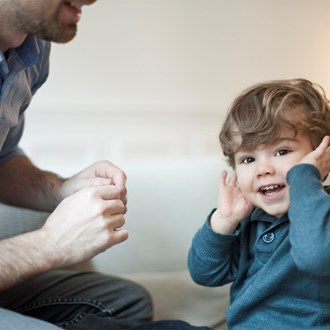The Problem With Tickling

It's not all it's cracked up to be.
By Livia Gamble
January 30 2017
Tickling is thought of as a fun way to get kids laughing, but depending who you talk to, the act isn’t all it's cracked up to be.
It involves touching a person’s body in a way that makes them laugh involuntary, and while laughing is thought of as a positive reaction, some researchers say it’s far from fun.
In an article published by The New York Times called, Anatomy of a Tickle Is Serious Business at the Research Lab, researchers do agree that light tickling between parents a baby can be a great way to bond, but others view it in a different light - especially for older kids.
Dr Richard Alexander, the Hubbell professor of evolutionary biology at the University of Michigan in Ann Arbor says in the article: “Ticklish laughter is not the happy phenomenon that many have assumed it to be…A child can be transformed from laughter into tears by going the tiniest bit too far… [Tickling] does not create a pleasurable feeling—just the outward appearance of one.”
Anyone who has been on the receiving end of a ‘tickle attack’ will know the unpleasant feeling mixed with the urge to laugh, usually giving the tickler the wrong impression. As Dr Alexander points out, there’s a fine line between fun and unbearable.
Parents in a Mumsnet forum also found it difficult to know when their child enjoys being tickled.
One mum said parents should make sure their child wants to continue instead of assuming "their shrieks are playful”.
A mum, who hated being tickled as a child wrote: “DD was shrieking, face away from DH, who thought she was having fun. I saw her face - she wasn't. I made him stop, he thought I was being silly."
Another member added: “Tickling circulates around issues of consent, and assumptions of pleasure, and learning to let someone do something to us that we do not want them to, but feel ridiculous protesting against...”
What do you think about tickling? Is it harmless fun or something that should be avoided.






